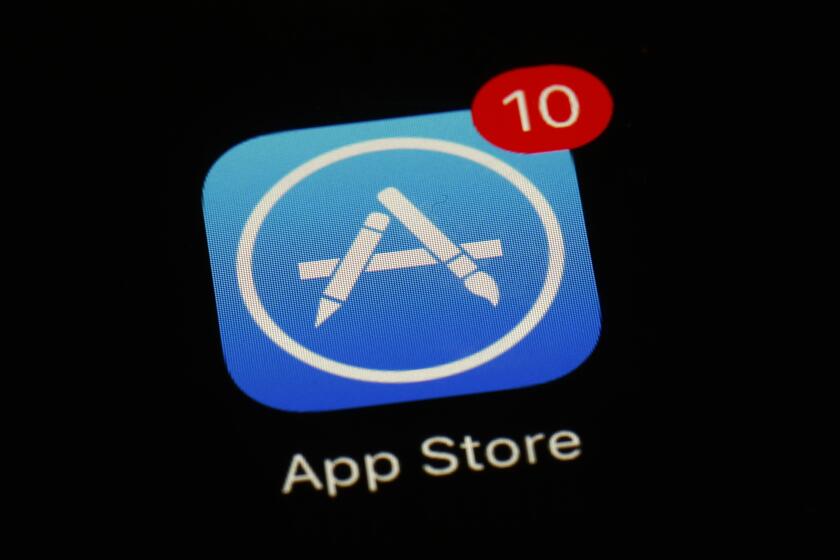Epic tries to show Apple violates antitrust beyond App Store
A top Apple Inc. executive tasked with defending the App Store in a monopoly lawsuit by Epic Games Inc. found himself having to answer Tuesday for a spate of other alleged antitrust fouls.
During Phil Schiller’s cross-examination in a trial in Oakland, Apple’s former global marketing chief was confronted about several instances in which the company has locked in users and made it difficult for them to switch away from its devices.
Katherine Forrest, a lawyer for Epic, pointed out that Schiller emailed his colleagues a 2016 news article titled “iMessage is the glue that keeps me stuck to the iPhone,” which said Apple’s messaging platform is a reason people don’t switch to Android devices.
She also quizzed Schiller on the idea that users can’t easily move music and video purchased on Apple services to Google’s Android. She went further, indicating that Apple’s iCloud Keychain service for storing passwords on Apple devices can’t synchronize with Android devices. Her point: Apple doesn’t just lock in developers with its App Store rules, it also locks in consumers, limiting their ability to switch to competitors.
In a high-stakes lawsuit the could have big implication for apps and mobile gaming, Epic Games has at times seemed to help make Apple’s case as much as its own.
In response, Schiller said many users subscribe to video and music streaming services and can input their passwords into a new device manually. He also suggested that users could use third-party password managers.
Epic’s lawyer also sought to show U.S. District Judge Yvonne Gonzalez Rogers, who will decide the App Store case without a jury, that Apple has been in antitrust cross-hairs before.
In 2012, the U.S. Justice Department brought a price-fixing case against Apple over the cost of eBooks on the iPad and iPhone’s built-in book reading app. Apple ended up settling for $450 million and was required to have a government-appointed monitor interview executives and review the company’s policies. Schiller said he wasn’t involved in the case, but Forrest said the monitor tried in vain for a year and a half to get permission to interview Schiller.
Another point of contention was Apple’s announcement in November of a new program to reduce App Store fees to 15% from 30% for developers who generate less than $1 million a year in revenue. Schiller couched it as an initiative to help small businesses during the COVID-19 pandemic but acknowledged under questioning that the company was also pivoting in response to worldwide scrutiny over App Store practices.
In an attempt to demonstrate that Apple favors its in own apps in search results on the App Store — another type of anticompetitive behavior — Forrest showed an exhibit of Apple Music and Apple News appearing at the top of search result rankings instead of third-party apps.
Schiller had an answer for that too: Search algorithms look at dozens of variables, including which apps users already have on their devices.
Richard Montañez has for years told a story of how he dreamed up Flamin’ Hot Cheetos while working as a Frito-Lay janitor. The archival record, former employees and Frito-Lay itself say otherwise.








